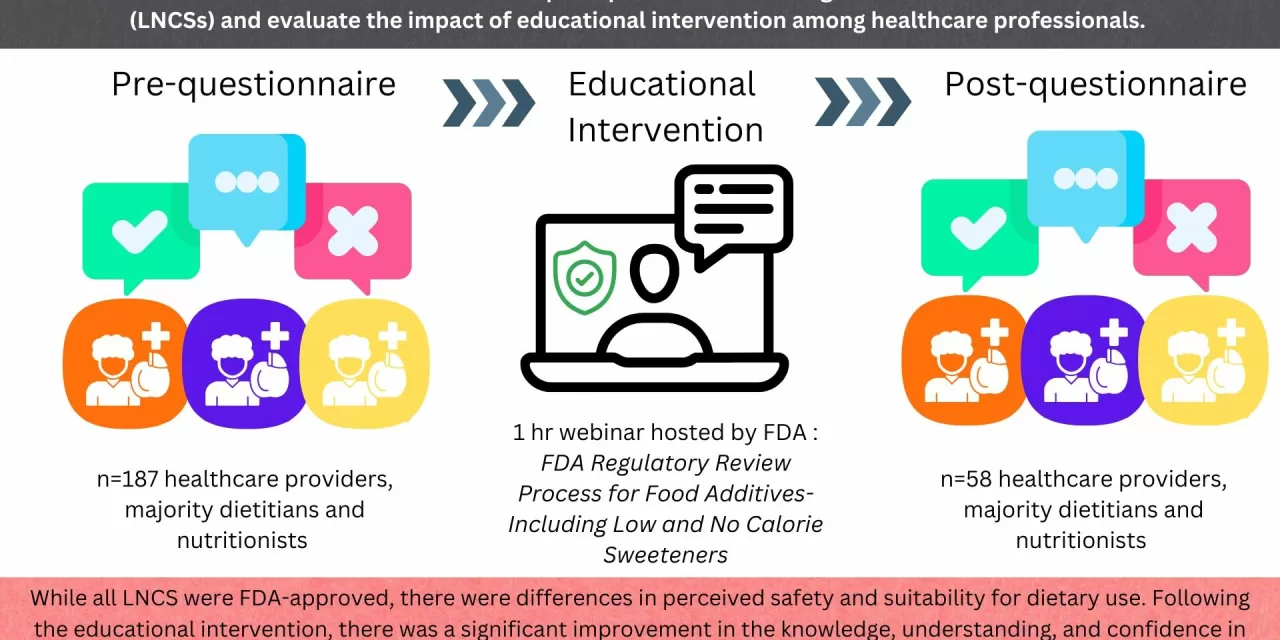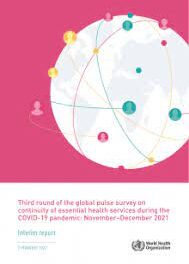A new study by a University of Massachusetts Amherst food scientist has found that education programs can improve dietitians’ and nutritionists’ confidence in advising patients on the use of low- and no-calorie sweeteners (LNCSs).
These products, such as aspartame and stevia, provide sweetness in the absence of caloric sweeteners such as sucrose, or table sugar, which may be useful for reducing added sugars in the diet. However, out of the 11 low- and no-calorie sweeteners included in the study, only one—stevia—was perceived to be safe by more than 50% of the 187 participants, most of whom were dietitians and nutritionists.
While it might be expected that natural sweeteners would be perceived as safer than artificial ones, that presumed trend was not observed in the study, notes Alissa Nolden, assistant professor of food science and lead author of a paper published in the journal Nutrients.
In fact, the findings showed that after stevia, a natural sweetener made from the leaves of the Stevia rebaudiana plant, aspartame—a low-calorie artificial sweetener—was perceived to be safe by more participants than other natural sweeteners, such as allulose and monkfruit.
“There has been an increased focus on sweeteners, with national and international groups supporting the reduction of sugar,” says Nolden, a sensory scientist whose work focuses on the relationship between diet, perception and chemosensory receptor biology.
“This has increased interest by the food industry in replacing sugar with sweetener alternatives to support these goals. However, even though they have been approved for use in foods by the FDA, consumers and dietitians remain uncertain about their safety.”
The new study, supported by the Institute for the Advancement of Food and Nutrition Sciences, evaluates the impact of an educational intervention where participants viewed a webinar on the government safety and review process for these sweeteners. Dietitians and nutritionists in the study learned about the regulatory review process for food additives and food ingredients and how the government evaluates safety and provides approvals. A pre-and post-questionnaire collected responses on the perceptions and knowledge of low- and no-calorie sweeteners among health care professionals to evaluate their impact.
According to the paper, “following the intervention, there was a significant improvement in the participants’ knowledge, understanding and confidence in the safety and approval process of LNCSs and reduced negative perceptions of LNCSs on health.”
All sweeteners in the study have been evaluated by the U.S. Food and Drug Administration, but participants were not equally familiar with the sweeteners and had different perceptions about their safety. The sweeteners most familiar to study participants were aspartame and stevia, while the least familiar sweeteners included thaumatin, advantame and neotame.
The paper notes that “most consumers do not fully understand LNCS and may be unsure or apprehensive about using them to replace caloric sweeteners. Considering that health care professionals are an essential resource for adults seeking dietary guidance, it is important to understand” their perceptions of LNCSs.
According to the paper, “Increased education is anticipated to assist health care practitioners in making objective recommendations during their clinical practice, improving confidence and patient guidance to support health outcomes.”
Nolden says more work is needed to prepare and educate consumers and health care providers on low- and no-calorie sweeteners as the food industry aims to meet dietary guidelines on sugar reduction.
“This research is the first step in highlighting the uncertainty regarding the use and safety of sweeteners, which they may be incorporated into more foods as companies seek alternatives to support the reduction of caloric sweeteners.”
More information: Alissa A. Nolden et al, Educational Intervention Boosts Dietitians’ Knowledge of the Safety and Approval of Low- and No-Calorie Sweeteners, Nutrients (2024). DOI: 10.3390/nu17010032
Journal information: Nutrients












